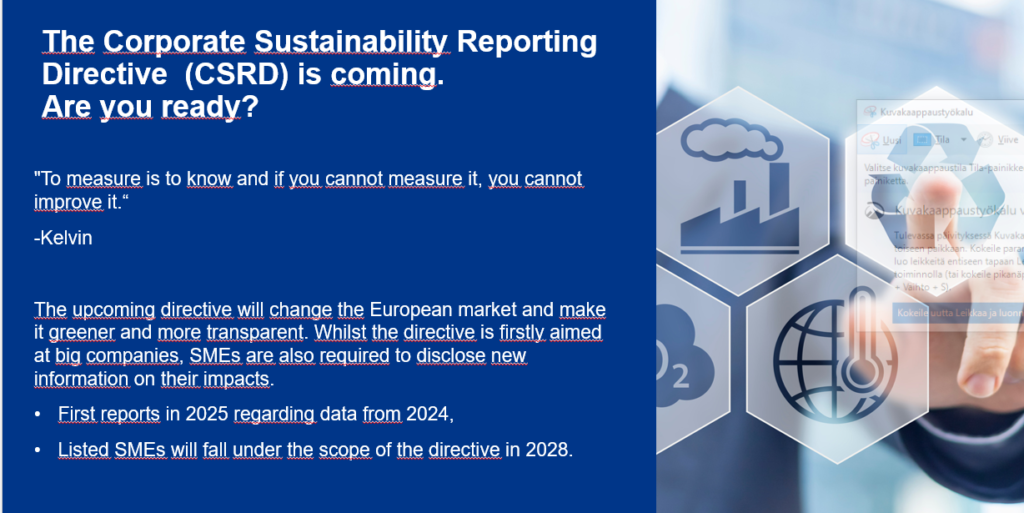Sustainability is one of the three pillars in Industry 5.0
The starting point is simple and concrete: the EU believes that consumers and investors deserve to know the sustainability impact of businesses. However, while some companies have already started to include sustainability into their regular reporting, lack of clear guidelines makes it hard to make comparisons between companies. EU’s Corporate Sustainability Reporting Directive (CSRD) was entered into force in January 2023 and is now being implemented into national laws. In Finland, it will be presented to the parliament in the autumn of 2023. The requirements come into force for large companies in the 2024 financial year, for reports published in 2025. Publicly listed SMEs will have to comply with the regulation starting 2028. CSRD will be accompanied by yet another four-letter acronym, ESRS (European Sustainability Reporting Standard), which is still in development.
Lisbet Frey started the FIIF Event Industry 5.0 organized with Taival Advisory by telling about an EU-funded project (SusTool) that is developing a publicly available corporate sustainability reporting tool to aid companies to abide by the CSRD. The tool will be piloted with Finnish, Estonian, and Latvian companies during 2024.
Sustainability is also one of the three pillars in Industry 5.0, complementing the mainly technical viewpoints of Industry 4.0. The other two are human-centricity and resilience. In Industry 5.0 the societal value of a company moves into the center, considering people, planet, and profit equally as company objectives. Michael Hanf (Taival Advisory) and Heikki Malmlund (Gofore) initiated a lively discussion on what this revolution means for business strategy, what opportunities will emerge, and how companies will implement it.
